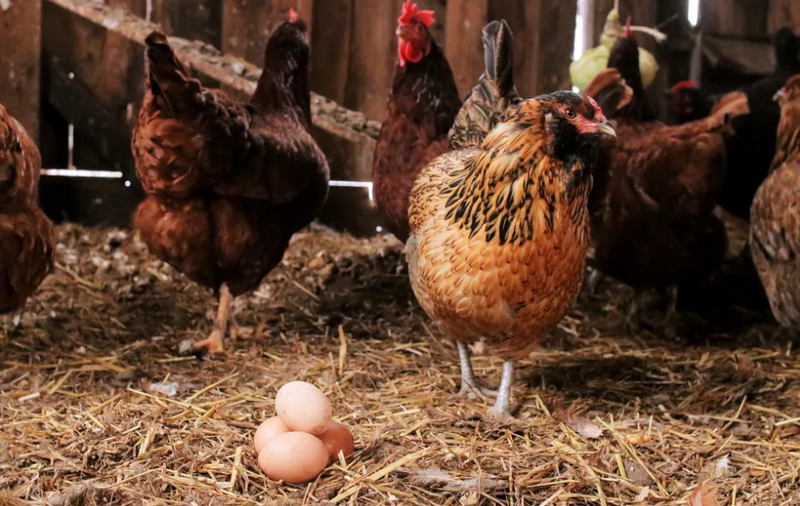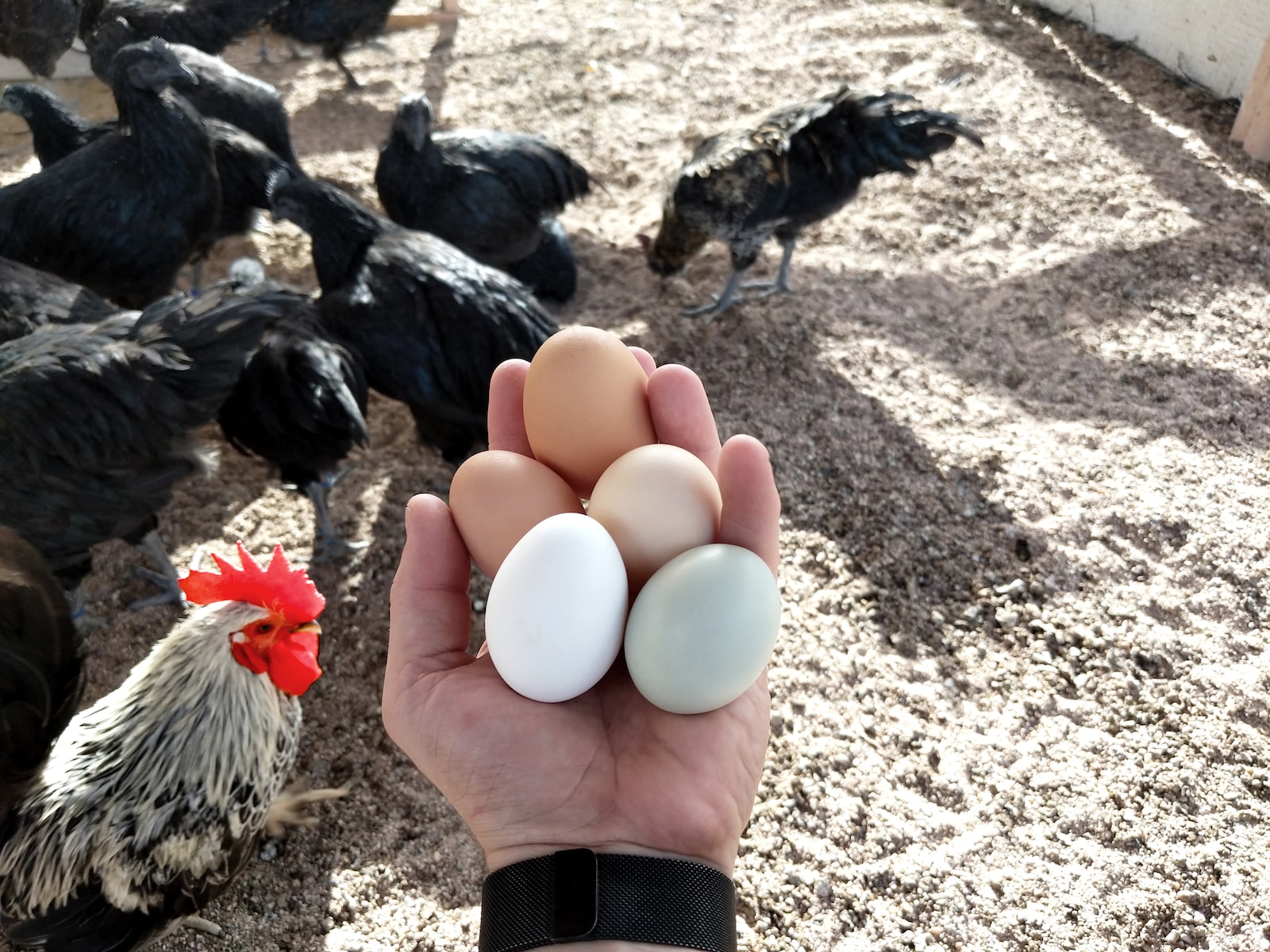Do hens produce eggs without a rooster? This is a question that often puzzles poultry enthusiasts and backyard farmers alike. The answer lies in understanding the biological processes behind egg production in hens. Whether you're raising chickens for eggs or simply curious about their reproductive capabilities, this comprehensive guide will delve into the science and practical aspects of egg-laying in hens without the presence of a rooster. Get ready to uncover fascinating insights into how hens can indeed produce eggs even when there's no male counterpart around.
Egg production in hens is a natural process that occurs regardless of the presence of a rooster. However, understanding the differences between fertilized and unfertilized eggs, as well as the conditions that influence egg-laying, is essential for anyone managing a flock. This guide will break down the key factors that contribute to egg production, including the role of hormones, environmental conditions, and the hen's overall health. By the end of this article, you'll have a clearer understanding of why hens can lay eggs without a rooster and how to optimize their egg-laying potential.
For those considering starting a backyard flock or expanding their poultry operation, this comprehensive guide will provide actionable advice and expert insights. From the basics of egg formation to advanced tips for maximizing egg production, we'll cover everything you need to know. Whether you're a beginner or an experienced poultry keeper, the information in this article will empower you to make informed decisions about your flock's management and ensure a steady supply of eggs.
Read also:Comprehensive Guide To Tucson Electric Power Payment Streamline Your Utility Management
What Happens When There Is No Rooster Around?
Many people wonder, do hens produce eggs without a rooster? The answer is yes, but with a caveat. Hens naturally lay eggs as part of their reproductive cycle, even without the presence of a rooster. However, these eggs will be unfertilized, meaning they cannot develop into chicks. The absence of a rooster does not hinder the egg-laying process, but it does affect the possibility of hatching chicks. Understanding this distinction is crucial for anyone managing a flock for egg production or breeding purposes.
Do Hens Produce Eggs Without a Rooster a Comprehensive Guide: Hormonal Influences
Hormones play a pivotal role in the egg-laying process. The hypothalamus in a hen's brain triggers the release of hormones that stimulate the ovaries to produce eggs. This hormonal cycle ensures that hens continue to lay eggs regularly, regardless of whether a rooster is present. Factors such as age, diet, and stress levels can influence hormone production, which in turn affects the frequency and quality of egg-laying. By maintaining optimal conditions for your hens, you can support their natural egg-laying abilities.
How Often Do Hens Lay Eggs Without a Rooster?
The frequency of egg-laying depends on several factors, including the breed and age of the hen. On average, a healthy hen can lay one egg per day, though this may vary. Without a rooster, the egg-laying process remains consistent, as the hen's body continues to produce eggs as part of its natural reproductive cycle. However, the absence of a rooster ensures that all eggs laid are unfertilized. Understanding how often hens lay eggs can help you plan for egg collection and storage efficiently.
Why Is Understanding Egg Production Important?
Understanding the egg-laying process is essential for anyone managing a flock. Whether you're raising chickens for eggs or breeding purposes, having a clear grasp of how hens produce eggs can help you optimize their productivity. By learning about the factors that influence egg-laying, such as diet, lighting, and stress levels, you can create an environment that supports your hens' health and well-being. This knowledge is particularly valuable when considering the role of roosters in egg production.
Can Hens Lay Eggs Without a Rooster?
Yes, hens can and do lay eggs without a rooster. This is a fundamental aspect of their biology, as egg-laying is a natural process driven by hormonal cycles. While the presence of a rooster is necessary for fertilization, it is not required for the hen to produce eggs. This means that even in a flock without a rooster, hens will continue to lay eggs, providing a steady supply for consumption or sale. Understanding this fact can help you make informed decisions about your flock's management.
What Are the Differences Between Fertilized and Unfertilized Eggs?
Fertilized and unfertilized eggs differ primarily in their potential for development. Fertilized eggs, produced when a rooster mates with a hen, have the potential to develop into chicks if incubated under the right conditions. Unfertilized eggs, on the other hand, are laid by hens without the involvement of a rooster and cannot develop into chicks. While both types of eggs are safe to eat, knowing the difference can help you decide whether to include a rooster in your flock for breeding purposes.
Read also:Whorsquos Hosting Snl Tonight A Deep Dive Into The Starstudded Lineup
Factors Affecting Egg Production in Hens
Several factors can influence the egg-laying capabilities of hens. These include:
- Diet: A balanced diet rich in protein, calcium, and essential nutrients is crucial for optimal egg production.
- Lighting: Hens require adequate exposure to light to maintain regular egg-laying cycles. Providing 14-16 hours of light per day can help stimulate egg production.
- Stress Levels: Stress can negatively impact a hen's ability to lay eggs. Ensuring a safe and comfortable environment can help minimize stress and improve productivity.
- Health: Regular veterinary check-ups and proper care can help prevent diseases that may affect egg-laying.
Do Hens Produce Eggs Without a Rooster a Comprehensive Guide: Environmental Conditions
Environmental conditions play a significant role in egg production. Temperature, humidity, and ventilation are all factors that can influence a hen's ability to lay eggs consistently. Ensuring that your coop is well-ventilated and maintained at a comfortable temperature can help support your hens' health and egg-laying capabilities. Additionally, providing a clean and spacious living area can reduce stress and promote optimal productivity.
How Can You Maximize Egg Production Without a Rooster?
Maximizing egg production without a rooster involves creating the ideal conditions for your hens. This includes:
- Providing a nutritious and balanced diet.
- Ensuring proper lighting and ventilation in the coop.
- Minimizing stress through a calm and safe environment.
- Regularly monitoring the health of your hens.
Conclusion: Do Hens Produce Eggs Without a Rooster a Comprehensive Guide
In conclusion, hens can and do produce eggs without a rooster. This comprehensive guide has explored the science behind egg-laying, the role of hormones, and the factors that influence egg production. By understanding the differences between fertilized and unfertilized eggs and optimizing the living conditions for your hens, you can ensure a steady supply of eggs. Whether you're raising chickens for personal consumption or commercial purposes, the insights provided in this guide will help you make informed decisions about your flock's management.
Table of Contents
- What Happens When There Is No Rooster Around?
- Do Hens Produce Eggs Without a Rooster a Comprehensive Guide: Hormonal Influences
- How Often Do Hens Lay Eggs Without a Rooster?
- Why Is Understanding Egg Production Important?
- Can Hens Lay Eggs Without a Rooster?
- What Are the Differences Between Fertilized and Unfertilized Eggs?
- Factors Affecting Egg Production in Hens
- Do Hens Produce Eggs Without a Rooster a Comprehensive Guide: Environmental Conditions
- How Can You Maximize Egg Production Without a Rooster?
- Conclusion: Do Hens Produce Eggs Without a Rooster a Comprehensive Guide


